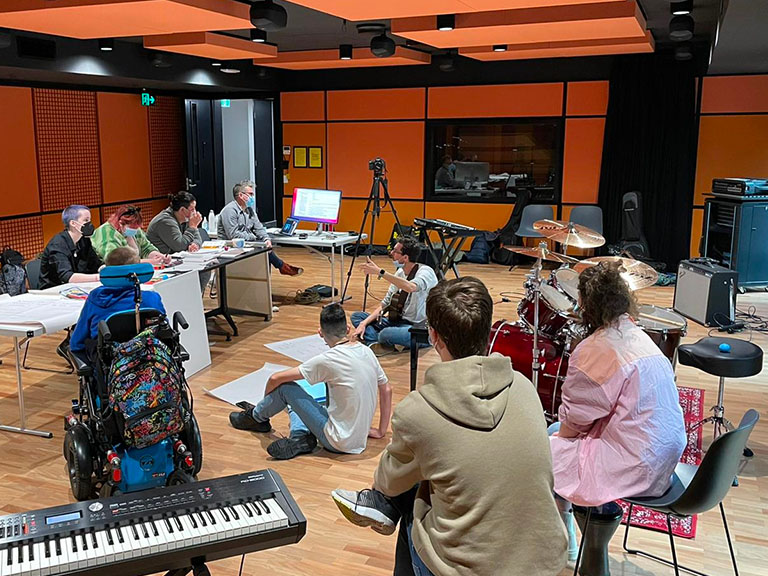Follow up may be required for several years to ensure that each young person has engaged effectively with adult healthcare services.
It is important to evaluate the transition process to inform future planning and policy.
- When the young person has engaged with adult health services, the transition coordinator or facilitator should follow up with them, or a carer, depending on the circumstances. Refer to transition processes outlined in Principle 1.
- Where transition has not been successful, provide feedback to paediatric and adult providers on the young person's progress with their consent.
- Regular evaluation should occur. Feedback from health teams, the young person and their carer is crucial. Patient-reported measures and other experience surveys can be used.
It would have been great to have had even three months of a little bit of compassion and interest about the welfare and the outcome. Jia Li, mother of a 20 year old *
Measures
System and service measures
- The young person is followed up for a minimum of 12 months after transition.
- The transition process is evaluated.
Patient and consumer measures
- Surveys with the young person are conducted after transfer.
- The young person is engaged with a general practitioner.
- The young person is engaged with adult health services.
Resources
- ACI Transition Consumer Experiences Survey. Email ACI-TransitionCare@health.nsw.gov.au
- Trapeze Outcome Measures Survey. Email SCHN-Trapeze@health.nsw.gov.au

References
- Betz CL, Smith K, Macias K. Testing the transition preparation training program: A randomized controlled trial. Int J Child Adolesc health. 2010;3(4):595-607.
- de Beaufort C, Jarosz-Chobot P, Frank M, et al. Transition from pediatric to adult diabetes care: smooth or slippery? Pediatr Diabetes. 2010;11(1):24-7. DOI: 10.1111/j.1399-5448.2009.00524.x
- Care Quality Commission. From the Pond to the Sea: Children’s transition to adult health services [Internet]. Glasgow, Scotland: Care Quality Commission; 2014 [cited 2022 Feb 10].
- Fernandes S, Fishman L, Oliveira J, et al. Current practices for the transition and transfer of patients with a wide spectrum of pediatric onset chronic diseases: Results of a clinician survey at a freestanding pediatric hospital. International Journal of Adolescent and Child Health. 2010 01/01;3:507-15.
- Michaelis AP. Helping young adults succeed in a world where “you can't”: Transitions to healthy adulthood for HIV-positive youths in Baltimore, Maryland. Ann Arbor, Ml, USA: The Johns Hopkins University; 2009.
* Name has been changed to protect privacy